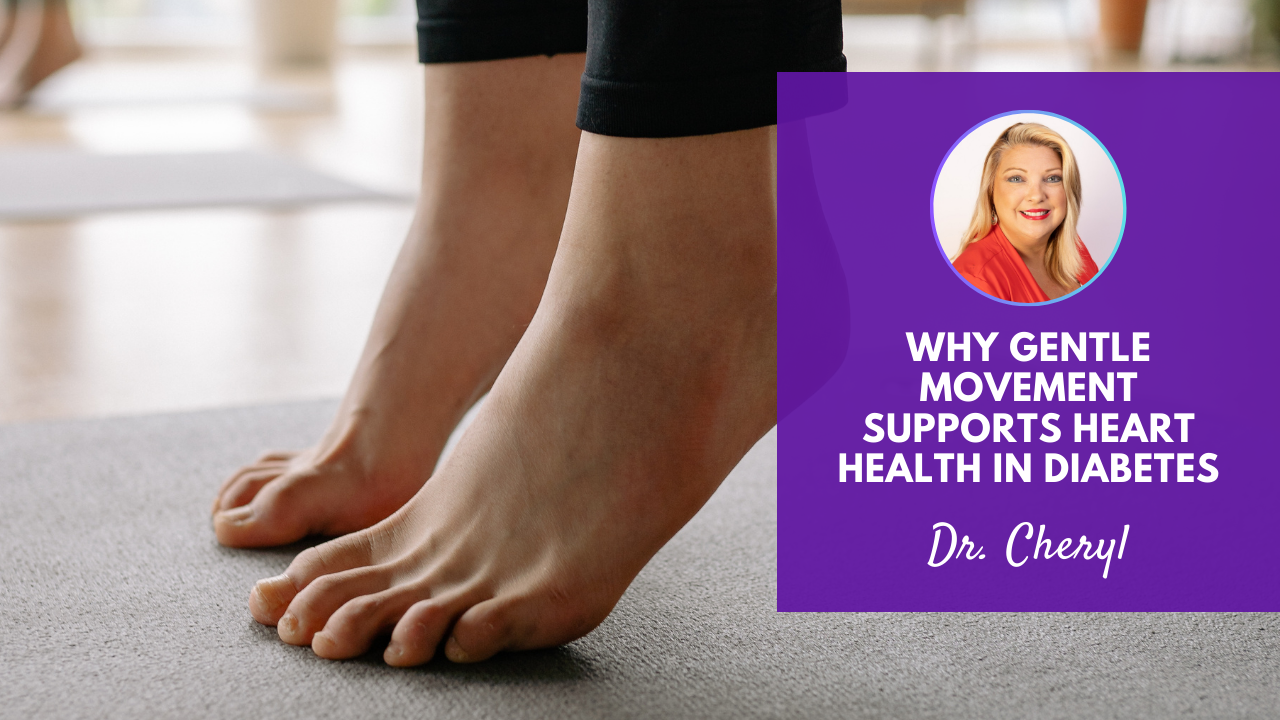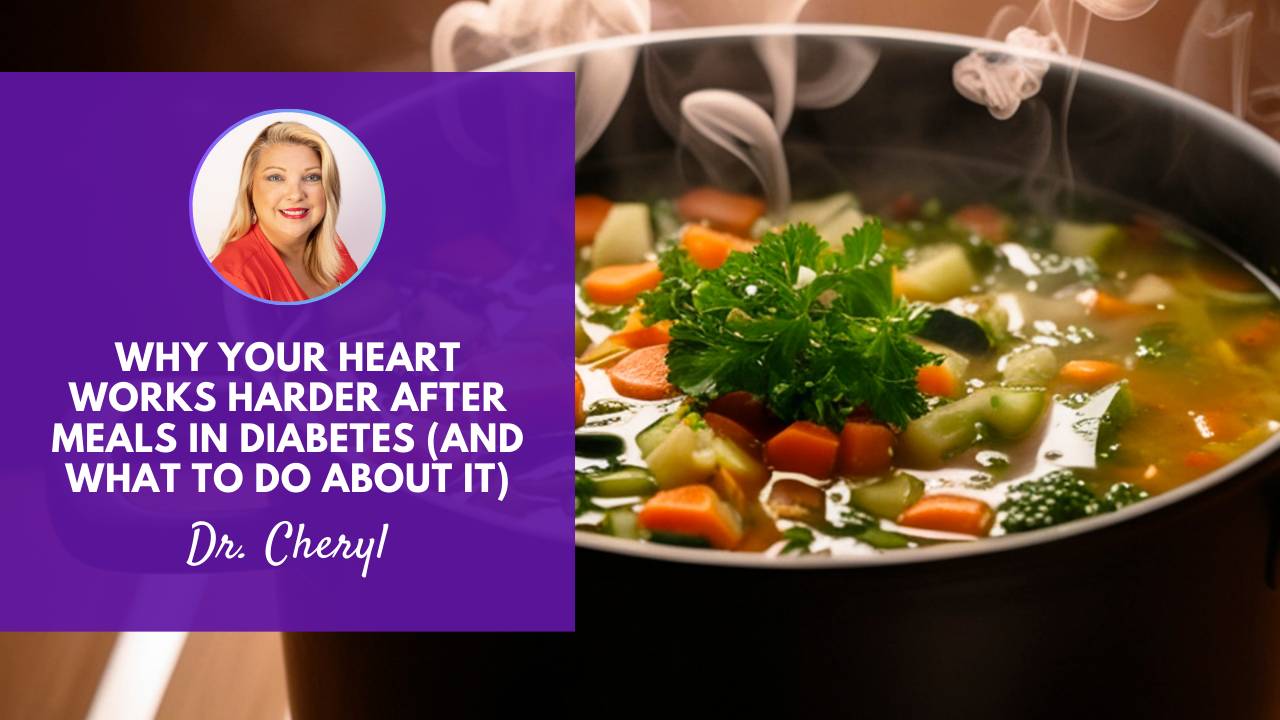
Eat for Your Eyes: Key Nutrients That Protect Vision and Balance Blood Sugar
When most people think about food and diabetes, the focus often lands on the numbers - calories, carbs, proteins, and fats. But there’s much more to the story. Every meal you eat is an opportunity to protect your long-term health, especially your vision.
Your eyes are lined with delicate blood vessels that depend on oxygen, antioxidants, and healthy circulation. When blood sugar runs high, these fragile vessels can weaken, leading to complications like diabetic retinopathy. The good news is that your daily food choices can strengthen these vessels, lower inflammation, and protect your eyesight for years to come.
And here’s the best part... you don’t need expensive supplements or complicated recipes. With simple, nutrient-rich meals, you can fuel your body, steady your blood sugar, and support the health of your eyes. In this article, you’ll discover the key nutrients that protect vision, what foods provide them, and how to create an eye-friendly plate at home.
How Meals Affect Your Eyes
Your eyes rely on oxygen, antioxidants, and healthy circulation to function at their best. When blood sugar stays high for extended periods, inflammation builds and damages the tiniest vessels including those that supply the retina.
The right diabetes-friendly foods don’t just prevent damage. They actively nourish eye tissues, protect against oxidative stress, and strengthen the body’s natural defense systems.
Key Nutrients for Eye Health and Blood Sugar Balance
- Lutein and Zeaxanthin: Found in dark leafy greens like spinach, kale, and collards, these antioxidants filter blue light and protect the retina.
- Omega-3 Fatty Acids: Salmon, sardines, flaxseeds, chia seeds, and walnuts support healthy blood vessels and reduce inflammation.
- Vitamin C: Citrus fruits, strawberries, kiwi, bell peppers, and broccoli strengthen capillaries and support collagen in eye structures.
- Zinc: Pumpkin seeds, chickpeas, beans, nuts, and seafood transport vitamin A from the liver to the retina where it’s needed most.
- Vitamin E: Almonds, sunflower seeds, and avocados protect eye cells from oxidative damage and support overall vision health.
A Balanced Plate to Nourish Your Eyes
Here’s an example of an eye- and blood-sugar-friendly plate:
-
Protein: A palm-sized portion of grilled salmon or lentils
-
Veggies: A generous serving of steamed kale or spinach
-
Complex Carbs: A side of quinoa or roasted sweet potatoes
-
Healthy Fats: A few slices of avocado or a sprinkle of pumpkin seeds
-
Flavor Boost: A squeeze of lemon and a drizzle of olive oil
This kind of meal supports steady blood sugar levels while providing the full range of nutrients your eyes depend on.
Your Kitchen Is a Place of Prevention
Your body works hard to protect your eyes, and every meal you prepare is a chance to support that process. Choosing foods that nourish rather than spike your blood sugar isn’t just about diabetes management. It’s about preserving your independence, your quality of life, and your vision.
You’re not just adding health to your days. You’re adding days and clearer sight to your life.
Bonus Tip
Want to go deeper on how meals influence both stress and blood sugar? Check out “How Your Meals Impact Stress & Blood Sugar: What to Eat for a Calmer, Healthier You.” This holistic guide explains how the foods you choose, not just how much you eat, can soothe your nervous system, support your Vagus nerve, and keep cortisol and blood glucose in check. It’s full of easy, science-backed tips to help you eat not only for your eyes and blood sugar but also for a calmer, more balanced you.
Frequently Asked Questions
What foods are best for eye health with diabetes?
Leafy greens, salmon, walnuts, citrus fruits, pumpkin seeds, and avocados provide antioxidants, omega-3s, and vitamins that protect vision.
Can diet really help prevent diabetic retinopathy?
Yes. A nutrient-rich, balanced diet helps reduce inflammation, stabilize blood sugar, and support the tiny blood vessels that protect your retina.
Do I need supplements for eye health if I have diabetes?
Not necessarily. Most nutrients can be obtained through whole foods. Supplements may help in specific cases, but food should be your first line of defense.
How does blood sugar affect vision?
Extended high blood sugar damages delicate eye vessels, raising the risk for retinopathy and vision changes. Balanced meals help prevent this.
Let’s Create Meals That Support Your Goals
If you’re ready to simplify your meals while protecting your health, schedule your complimentary Diabetes Wellness Connection Call today. We’ll talk about what’s working, where you feel stuck, and how to create a food plan that supports both your blood sugar and long-term vision.
A diabetes-friendly plate can help you see more clearly, literally and figuratively. Let’s connect and get you started.
ABOUT THE AUTHOR

Dr. Cheryl
Dr. Ac., C.H., RDH
Dr. Holistic Studies, Dr. Acupuncture
Diabetes Wellness Strategist & Coach
Creator & CEO of Holistic Diabetes Solutions
8 X International Best-Selling Author
As a woman living with diabetes for over 30 years, Dr. Cheryl understands the journey firsthand. When she was diagnosed, she received the same outdated advice her grandmother was given for over four decades, who relied primarily on medication, suffered from deteriorating health and eventually lost her life to diabetes. Fueled by this experience, Dr. Cheryl was compelled to seek a better way. Through countless research studies and trials, she developed the winning holistic approach: the Diabetes Success System which merges traditional wisdom with today’s best holistic self-care practices. It has revolutionized diabetes management by providing a trusted way to maintain consistent and predictable healthy blood sugar levels.
_______________________
PROFESSIONAL DISCLAIMER
The material and content contained in this platform is for overall general diabetes health and education information only. It is not intended to constitute medical advice or to be a substitution for professional medical recommendations, diagnosis or treatment. All specific medical questions or changes you make to your medication and/or lifestyle should be discussed and addressed with your primary healthcare provider. Having the right mindset, doing the right movements at the right times of day, and eating foods that help keep blood sugar, insulin, and inflammation manageable can dramatically reduce your risk of the all-too-common complications of Diabetes, increase your energy levels and have you feeling your best every day.






